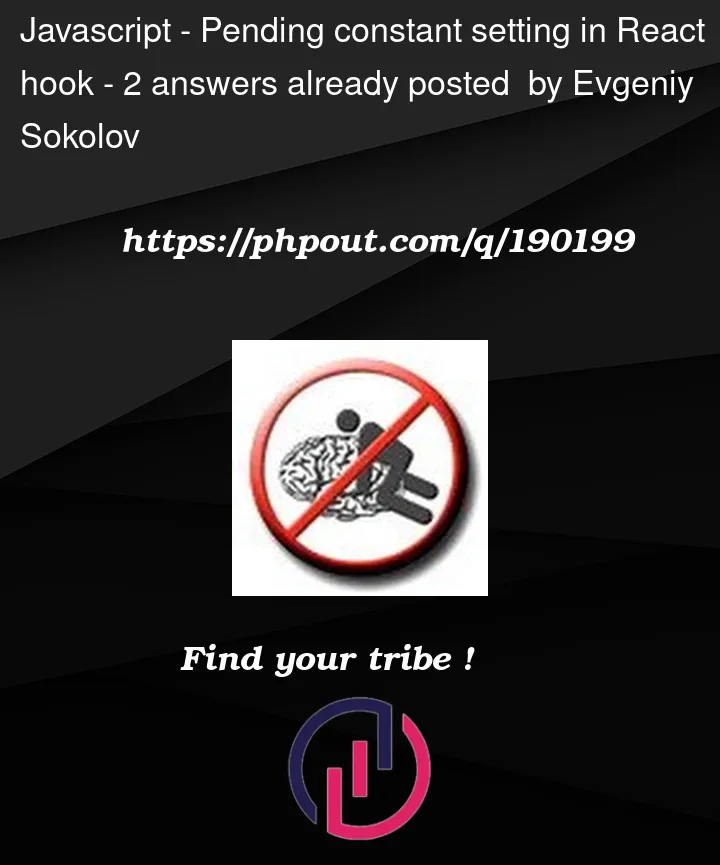my hook:
export function useToken2() {
const { data: session, status } = useSession();
const [token, setToken] = useState<string | null>(null);
useEffect(() => {
if (status === 'authenticated' && session?.accessToken) {
logger('useEffect setToken')
setToken(session.accessToken);
}
}, [status, session]);
const tokenFn = useCallback(async (): Promise<string> => {
return new Promise<string>((resolve) => {
if (token != null) {
resolve(token);
} else {
const tokenInterval = setInterval(() => {
if (token != null) {
clearInterval(tokenInterval);
resolve(token);
}
}, 100);
setTimeout(() => {
clearInterval(tokenInterval);
logger('tokenFn timeout')
resolve('');
}, 5000);
}
});
}, [token]);
return {
tokenFn,
};
}
hook call:
const Test: FC = () => {
const [token, setToken] = useState('');
const {tokenFn} = useToken2()
useEffect(() => {
tokenFn().then((res) => {
setToken(res)
})
}, []);
return (
<>
{token}
</>
);
};
The token is always empty, but hook cannot return null as token.
status === ‘authenticated’ is set some time after start.
How to expect token setting in tokenFn? setInterval doesn’t work.
Log:
- useEffect setToken
- tokenFn timeout




2
Answers
solved
In your code, it seems that you are not updating the token state in the useEffect inside the useToken2 hook. The condition if (token != null) inside the tokenFn callback does not update the state.
To fix this issue, you can update the token state whenever it changes using the setToken function inside the useEffect of the useToken2 hook. Here’s an updated version of your
Here is an updated code: